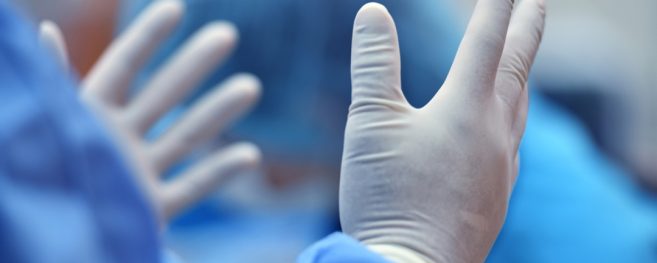Gluten Free Diets and Bariatric Surgery
By: Susan Epstein, MS, RD, CDN
Gluten free diets are in the news more than ever. In this article we will examine gluten free diets and how they impact people who have bariatric surgery.
Gluten is a general name for the proteins found in grains such as wheat, barley, and rye. Gluten acts like a “glue” to hold food together allowing foods to hold their shape. Examples of foods that contain gluten are breads, pastas, pizza, cereals, and crackers. Gluten free diets are recommended for people who suffer from Celiac Disease or have gluten intolerances or sensitivities. With Celiac disease, your immune system attacks the gluten and harms your small intestine. Even small amounts of gluten can cause symptoms of bloating, gas, and diarrhea. This makes it difficult for your body to absorb nutrients that keep you healthy.
If a person has Celiac disease and a gluten free diet is prescribed, he/she will need to read ingredient labels very carefully. Ingredients such as “modified food starch” or “hydrolyzed vegetable protein” may contain gluten. Certain processed cheeses may also contain gluten. Even foods labeled “wheat free”, does not mean “gluten free”. Gluten also comes from other grains including barley and rye as listed above.
Foods allowed on a gluten free diet include fresh chicken, beef, turkey, pork, and fish. Fresh and frozen vegetables and fruits are also allowed as long as there are no gluten containing additives. Eggs, yogurt, and dairy products should be fine. Potatoes, quinoa, rice, beans, nuts, and certain flours such as buckwheat, amaranth, corn, flax, millet, and oat bran to name a few can also be gluten free.
Now we reach our most important point. Can you follow a gluten free diet after Bariatric Surgery? As we noted above, most lean proteins, vegetables, and fruits are allowed on a gluten free diet. Foods higher in carbohydrates such as the starchy vegetables and grains listed above would need to be avoided.
What about protein shakes and vitamin supplements? Gluten may appear in both of these types of products. Careful reading of the nutrition label/ingredients is required keeping in mind that gluten free options are readily available and your registered dietitian can assist you with this.
A word of caution. Although gluten free diets are indicated for some people with gluten intolerances or sensitivities, it is not necessarily a “healthier” way of eating as some manufacturers try to portray. There are many unhealthy gluten free products available in stores today. Cookies, cakes, muffins, pasta, chips, and pretzels that are “gluten fee” are not good for your health. Often these products have added sugar and/or fat to compensate and to improve the texture and flavor of these foods.
Your best bet with both a gluten free diet and a Bariatric low carbohydrate diet is to choose “whole” foods. Fresh ingredients including lean proteins, vegetables, and fruit will allow you to gain control of your health and allow the weight loss you desire.











